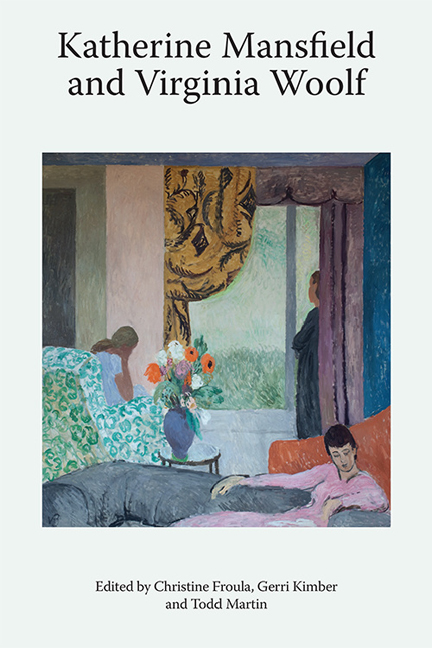Seated between ‘Geniuses’: Conrad Aiken’s Imaginative and Critical Responses to Katherine Mansfield and Virginia Woolf
Published online by Cambridge University Press: 07 May 2021
Summary
On 13 April 2017, an article appeared in the Los Angeles Times intriguingly titled: ‘Is It Time to Rediscover Conrad Aiken?’ The coincidence of its publication while I was in the midst of writing this essay was startling, not only because of its timing, but because its title corresponded with an implicit question that might have been asked about Katherine Mansfield's reputation in the United States when I first began writing about her several decades ago. It might also have been asked about Virginia Woolf's reputation before she was taken up by American Second Wave feminists.
I had been reading Conrad Aiken (1889–1973) as part of a larger project on Katherine Mansfield's American legacy because of his role in shaping her critical reception in the 1920s. I had not yet known about his personal interactions with her, and more importantly, how his prose narratives bore witness to her influence. I discovered Aiken during my first year as a university student when I read his most famous short story: ‘Silent Snow, Secret Snow’. I had yet to read any modernist literary fiction, although I had struggled through T. S. Eliot's ‘Prufrock’ in the same Freshman English class. Aiken's evocation of the mysterious inner world of a child, revealed through its symbolic manifestations, preceded my discoveries of both Mansfield and Woolf and prepared me for reading them a few years later. I knew nothing about the author himself. Those were the days of strict conformity to the principles of the New Criticism. Biographical and other contextual approaches to literary works were dismissed as unfashionable. I would not have been aware then (nor would I have cared) that Aiken had won the Pulitzer Prize in 1929 for his Selected Poems, or that he had recently served as the poetry consultant for the Library of Congress (a position now called the Poet Laureate). Neither would I have known that Aiken was a long-time friend of Eliot and introduced Eliot to Ezra Pound, thus launching a relationship that produced the final version of The Waste Land; nor that John Middleton Murry had selected Aiken to write ‘Letters from America’ soon after he took on the editorship of the Athenaeum in 1919.
- Type
- Chapter
- Information
- Katherine Mansfield and Virginia Woolf , pp. 42 - 54Publisher: Edinburgh University PressPrint publication year: 2018



